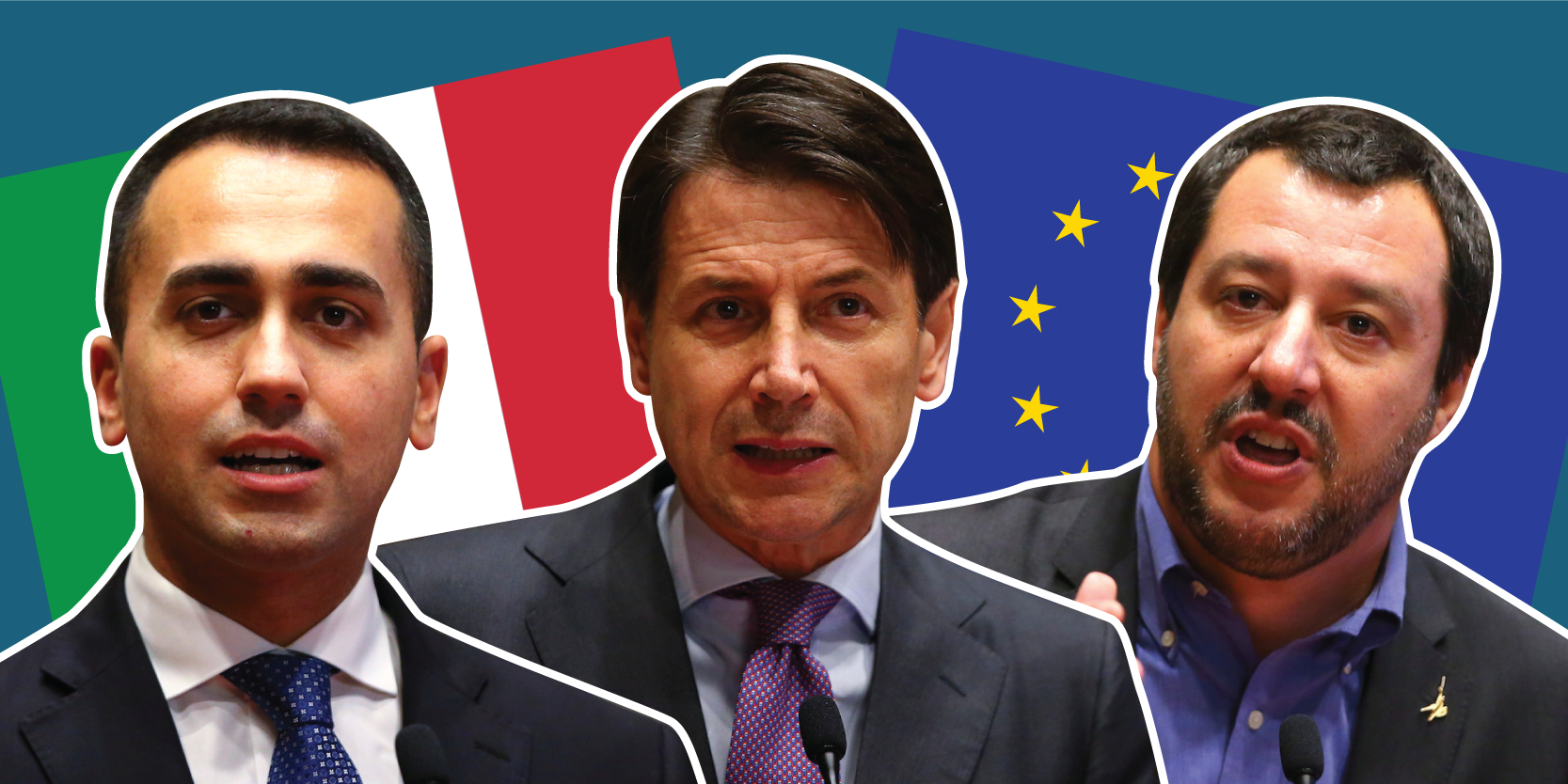- A fresh political crisis is brewing in Italy over plans for the coalition government’s first budget.
- The coalition late on Thursday agreed to set Italy’s budget deficit at 2.4% of GDP.
- This is far above the 1.6% level that technocratic finance minister Giovanni Tria had lobbied for and puts Italy on a collision course with the EU.
- Italy risks falling foul of EU fiscal responsibility rules.
Markets across Europe tanked on Friday. The euro dropped, stocks plunged, and yields on government debt spiked. Italy was at the epicentre of all the trouble. After a few months of relative political calm, Italy is back centre stage in European politics.
The source of the drama this time is the country’s upcoming budget – the first under the populist coalition government of the Northern League and the Five Star Movement. The issue surrounding the budget effectively boils down to a conflict between the leaders of the two parties, the eurozone, and Italy’s technocratic finance minister Giovanni Tria.
What exactly is going on? The budget crisis can be traced back to March’s general election. Both Five Star and the League ran on platforms based on anti-austerity policies, high levels of spending on infrastructure and social welfare, and tax cuts for lower-income Italians.
Both parties railed against Italy’s established political parties and their perceived failure to deliver on promises over the years. Now, after success in the election. both Five Star and the League, must deliver on their manifesto pledges if they want to avoid claims massive hypocrisy.
Big infrastructure and welfare spending obviously requires lots of money. That, in turn, means government borrowing. Italy already has a national debt bigger than its GDP, at around 130% of GDP, and major spending would likely push that even higher. Luigi Di Maio, Five Star's leader, and Matteo Salvini, the League's leader, are both fine with increased debt, but the finance minister they appointed, Tria, is not.
Tria wants to pursue a more fiscally responsible strategy aimed at cutting Italy's sizeable debt pile. He has proposed a cap of 1.6% of GDP on Italy's budget deficit - the gap between government spending and revenues - something both Five Star and the League reject.
The parties formally rejected Tria's proposal late on Thursday, saying in a statement they had agreed to set Italy's budget deficit at 2.4% of GDP, a significant increase on the current level.
"The prominence of fiscal rigour wasn't shared by the two main stakeholders of the government alliance," Paolo Pizzoli, an economist with Dutch bank ING, said in a note released on Friday.
"Both Matteo Salvini and Luigi Di Maio converged on the idea that more fiscal leeway should be left to implement their electoral promises."
The conflict is so strong that Tria reportedly threatened to resign, before backing down.
So what's the big deal? Well, a 2.4% of GDP budget deficit risks putting Italy in breach of the EU rules surrounding fiscal responsibility. That could lead to punitive action from Brussels against Italy.
"In case of a big mismatch and continuous clash, we won't rule out the future re-opening of an excessive deficit procedure against Italy," Pizzoli said in his note.
He added: "Lacking projected fiscal and growth details, it's impossible to assess the extent to which the EU fiscal requirements will be missed under the planned deficit profile."
It should be noted that the crisis is unlikely to be as severe as might have been expected, after both Five Star and the League "accepted the introduction of the three strongholds of the government programme; the introduction of a flat tax, the loosening of the Fornero pension reform and the introduction of a form of minimum universal income and pension would necessarily follow a piecemeal approach."
It is clear, Pizzoli says, that Italy is not set for a "massive fiscal splurge."

